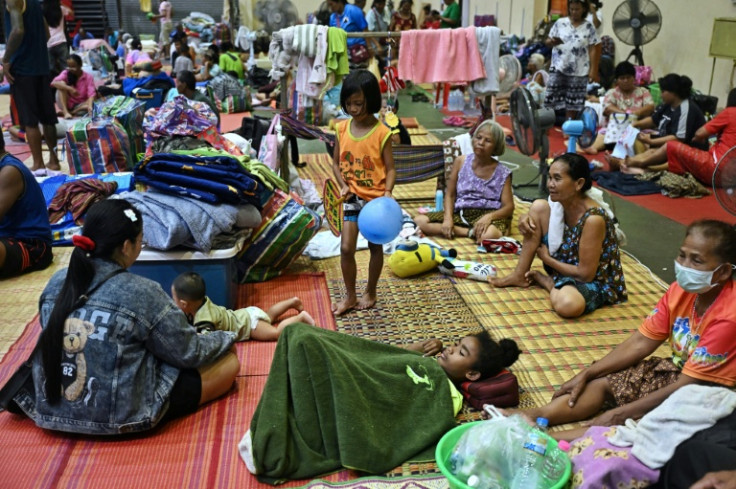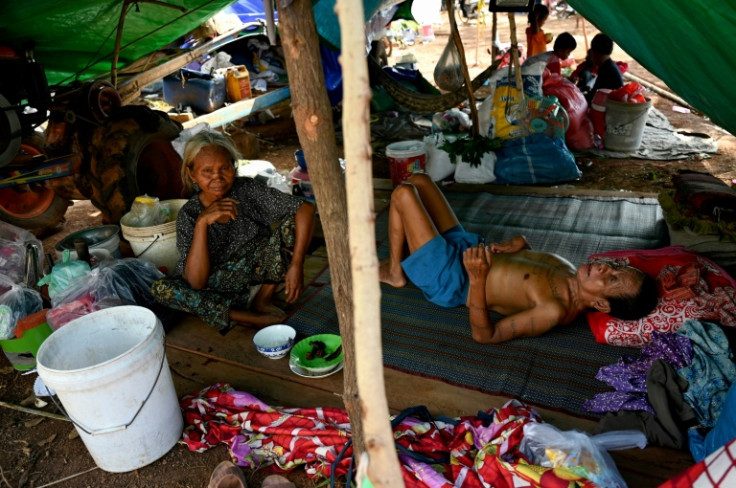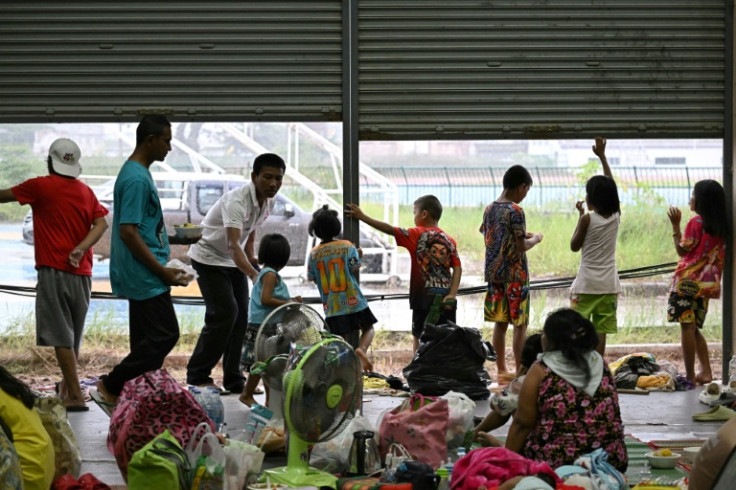Thai-Cambodia Evacuees Hail Truce News With Mixed Emotions

Counting down the minutes to midnight when a truce with Cambodia is due, Thai evacuee Jeanjana Phaphan is full of a fragile hopes and doubts that peace will prevail.
"I'd be so happy if the ceasefire really happens," said 48-year-old farmer Jeanjana, who fled her frontier home in Phanom Dong Rak district with her three-year-old son a few days ago.
"If it's truly ending, I'm overjoyed --- the happiest I've felt in a long time," she told AFP at a shelter in Surin city, 50 kilometres (30 miles) from the border.
Thailand and Cambodia's leaders have agreed an "unconditional" ceasefire will begin at midnight on Monday, following five days of combat along their jungle-clad frontier that has killed at least 38 people.
Nearly 300,000 people have fled as the two sides fired artillery, rockets and guns in a battle over long-disputed areas home to a smattering of ancient temples.
News of the ceasefire sent a ripple of relief, measured with a degree of scepticism, through those who fled since the fighting erupted last Thursday.
"If our two countries keep fighting, the hardship and loss will only grow," Jeanjana said.
"When I hear neighbours say their roof was pierced by bullets, it makes me heavy-hearted. The sound of people crying from loss is truly heartbreaking," she added with a trembling voice and tear-brimmed eyes.
"People on that side are civilians too, just like us. On our side we're just farmers -- and I believe they are farmers like us too. Ordinary people working to survive."
The peace deal was agreed in Malaysia, under the mediation of its Prime Minister Anwar Ibrahim following interventions by US President Donald Trump and Chinese negotiators.
But sitting on a straw mat next to his wife, 68-year-old farmer Tee Samanjai is thinking not about those high-table talks, but his normal life back on his farm.
"The first thing I'll do when I get home is check on the chickens, fertilise the rice, and take care of the fields," he said. But his anticipation to return is also clouded with doubt.
The past week's clashes have been the deadliest since 2008-2011 over the territory, claimed by both sides because of a vague demarcation made by Cambodia's French colonial administrators in 1907.
"I still have doubts that Cambodia will follow through with what they agreed to," Tee said.
"We may go home, but with unease. There's no peace of mind. I want to go back, but I don't trust Cambodia at all. No one in our village does."
Just over the border in Cambodia, camped out at a temple evacuation site in Phumi Bak Thkav, farmer Say Yoeun has much in common with his Thai counterpart.
"I am not happy to stay somewhere like this," said the 55-year-old.
"I miss my home and livestock -- and I cannot take care of my paddy field."
Cambodian and Thai commanders are due to meet early Tuesday morning if the truce holds, before villagers can return to their homes and start counting the cost of the conflict.
For Thai Kavindhra Tiamsai, who evacuated her mother from the conflict zone, the fighting has revealed how locals on the fringes of both countries are marginalised by their governments.
"A ceasefire is a good option but also the minimum," the 33-year-old said.
"What we need is a comprehensive, grounded plan that speaks to the realities of rural life."
"One that doesn't assume evacuation is easy -- or even possible -- when most families have no transport, no money to buffer, and no safety net to lean on."



© Copyright AFP {{Year}}. All rights reserved.





















